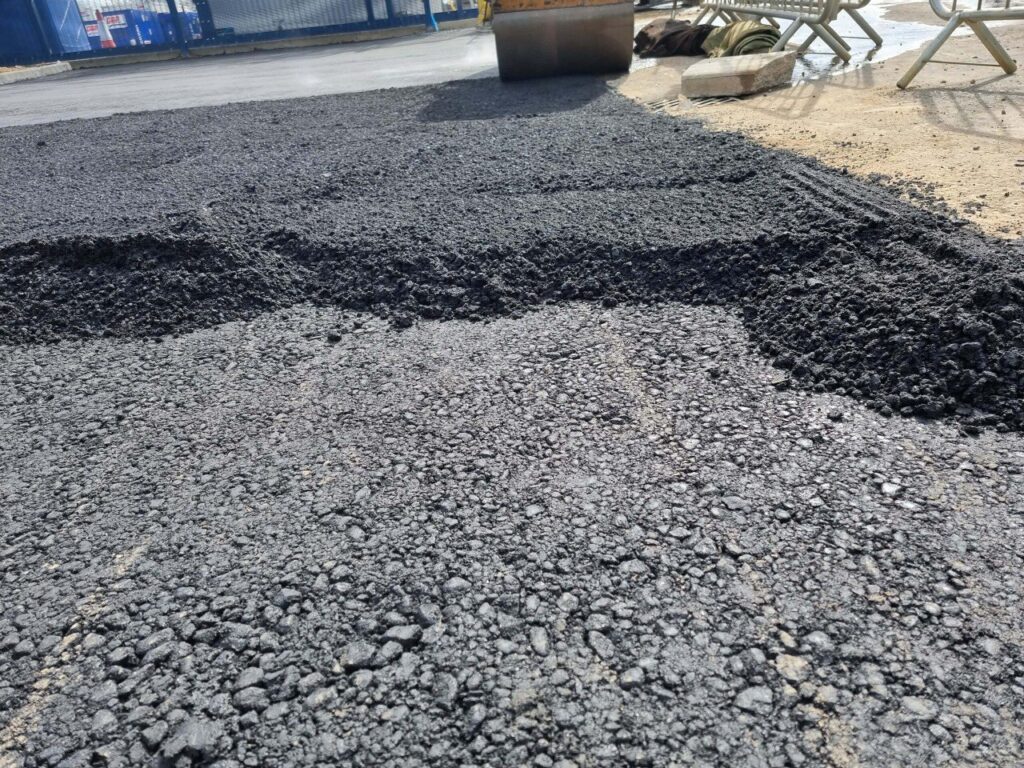Frequently Asked Questions About Residential Tarmac Surfacing
When it comes to residential driveways, few materials offer the same balance of durability, affordability, and neat appearance as tarmac. Yet despite its popularity, many homeowners are still unsure about what’s involved in tarmac surfacing, how long it lasts, and whether it’s right for their property.
At NS Driveways Farnham, we specialise in high-quality tarmac installations across Farnham, Surrey. To help you make a confident, informed decision, we’ve compiled answers to the most common queries we hear from homeowners considering a tarmac driveway.
What Makes Tarmac a Great Choice for Residential Driveways?
Tarmac is a tried and tested surfacing material that’s valued for its strength and flexibility. It’s particularly well-suited to the UK climate, as it holds up well against rain, frost, and regular vehicle use. Plus, its smooth, dark finish gives properties a tidy, modern look.
Top advantages of tarmac include:
- Fast installation with minimal disruption
- Long-lasting surface that handles heavy use
- Weather-resistant and low-maintenance
- Cost-effective compared to block paving or resin
- Easily repairable in the future if needed
How Long Does a Tarmac Driveway Typically Last?
With professional installation and occasional maintenance, a residential tarmac driveway can last 15 to 20 years or more. The key to longevity is a properly prepared base layer and good water drainage to prevent erosion or cracking over time.
Can Tarmac Be Installed Over an Existing Driveway?
In some cases, yes — tarmac can be laid over an existing surface such as concrete or an older tarmac layer, provided the base is still stable and free from major damage. A site assessment will determine whether this is a viable option or whether full excavation is required.
How Long Before I Can Use My New Driveway?
Typically, a tarmac driveway needs around 24 to 48 hours to cure enough for foot traffic, and 3 to 5 days for vehicle use, depending on the weather. Avoid turning wheels while stationary during the first few weeks, as the surface continues to harden.
Does Tarmac Require Much Maintenance?
Tarmac is relatively low-maintenance. Occasional sweeping, pressure washing, and removal of weeds from edges is usually sufficient. Over time, applying a sealant can enhance its appearance and prolong the lifespan. If cracks appear, they can often be repaired without redoing the whole surface.
Are There Any Design Options with Tarmac?
While tarmac is usually a smooth black surface, you do have options. It can be edged with block paving, kerbstones, or gravel borders to enhance kerb appeal. This makes it versatile enough to suit both traditional and modern home styles.
Is Tarmac Environmentally Friendly?
Tarmac is one of the most recyclable surfacing materials available. Much of the material used in installations today comes from recycled road surfaces. It also provides excellent drainage if installed correctly with a slight gradient and suitable sub-base.
Final Thoughts
A tarmac driveway offers an unbeatable combination of strength, practicality, and smart appearance — all without the hefty price tag of more decorative options. It’s quick to install, easy to maintain, and can be tailored to complement your home’s exterior.
At NS Driveways Farnham, we take pride in delivering top-tier tarmac surfacing with attention to detail and long-term results. Whether you’re replacing an existing surface or starting from scratch, our team is ready to guide you through the process and ensure a seamless finish that adds genuine value to your property. Reach out today and let’s bring your driveway vision to life.
Call us on: 01252 941 699
Click here to find out more about NS Driveways Farnham
Click here to complete our contact form and see how we can help with your driveway needs.

